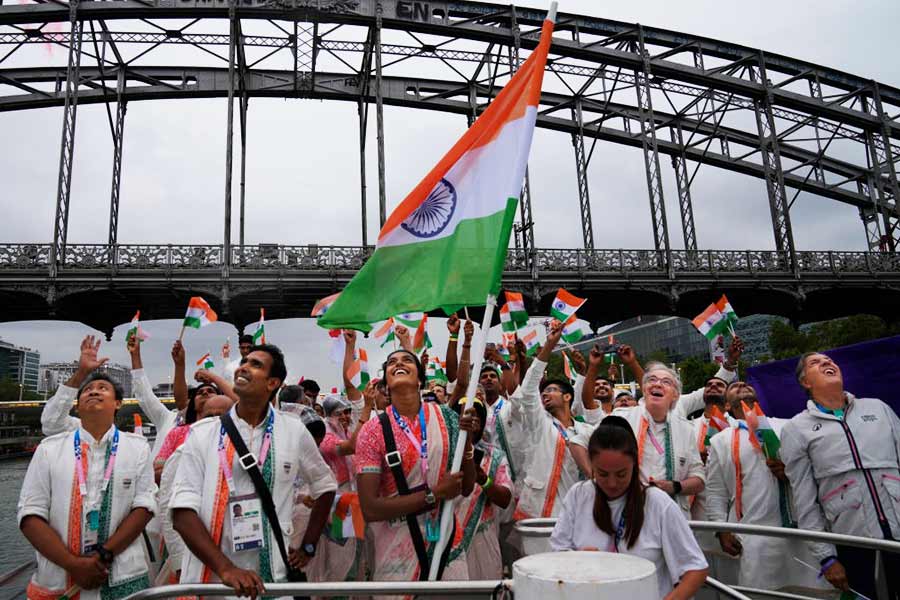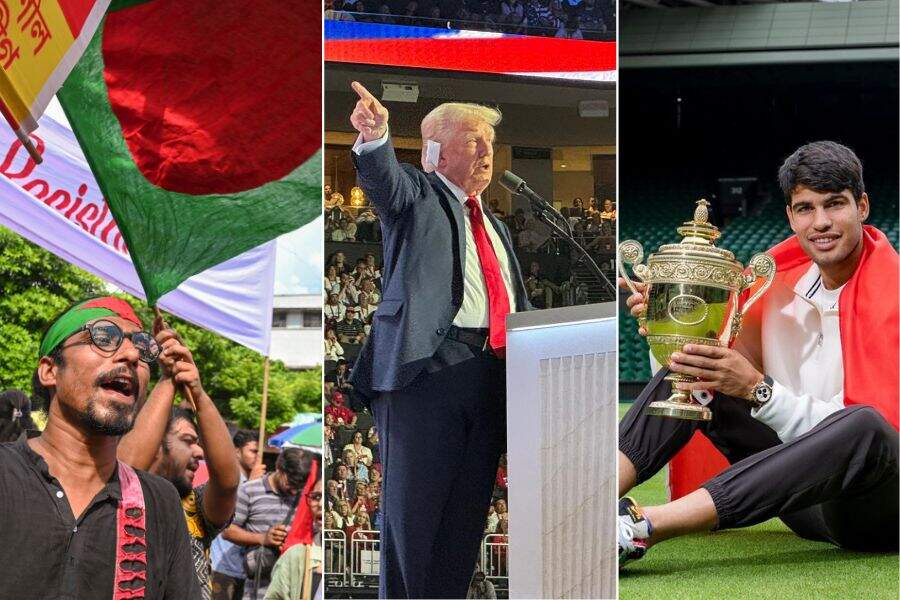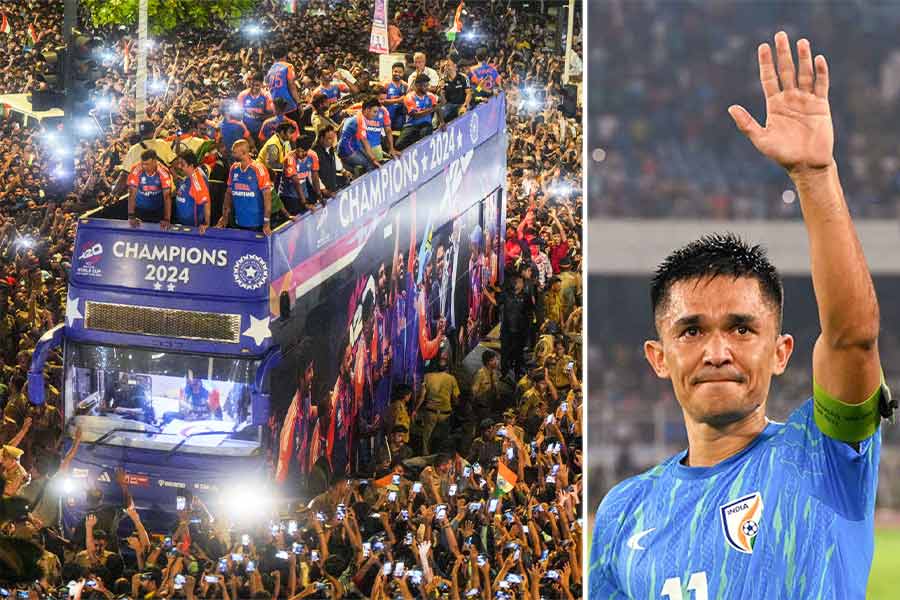If you are on any social media platform, you would have noticed the spike in armchair Indian sports commentators on them. These are people following our sports persons participating at the Paris Olympics. And keeping a keen eye on the medal tally. ‘Why aren’t we moving quicker?’, ‘Why did they play that?’, ‘That was so easy, how could she shoot 9s in two rounds?’, and perhaps the most self-exposing question, ‘Why can’t we be better than them?’.
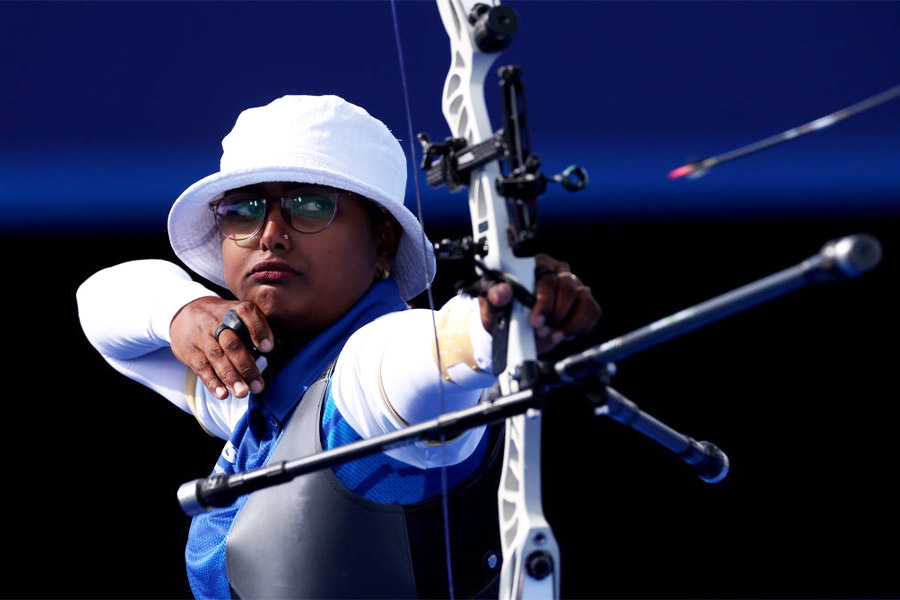
Olympic archers shoot from either 50 metres or 70 metres away at targets measuring 80 centimetres or 122 centimetres (In picture: Deepika Kumari at the Olympics 2024) Getty Images
I will not dwell on the irony (or hypocrisy) of someone who would struggle to climb three flights of stairs commenting on the nation’s finest athletes. An overwhelming majority among us have no idea about the difficulty level any Olympian contends with.
Olympic archers shoot from either 50 metres or 70 metres away at targets measuring 80 centimetres or 122 centimetres. To score a 10 is much, much harder because then the target is a factor of 10 smaller — diameter of 12.2 centimetres or 8 centimetres. Consider this for a moment: 70 metres is four blue-yellow Kolkata buses parked back to back and 12.2 centimetres is smaller than your average smartphone screen. Did I forget to mention that the archers have to adjust for not just wind conditions but also the sun while shooting their arrows? And not get affected by the pressure of expectations on them and the crowd?
Suffice it to say, not easy. Not by a long, long, long, long stretch. Commenting on the archers’ performances though is very easy. As they say, critiquing and commenting are tax-free. Even after Budget 2024.
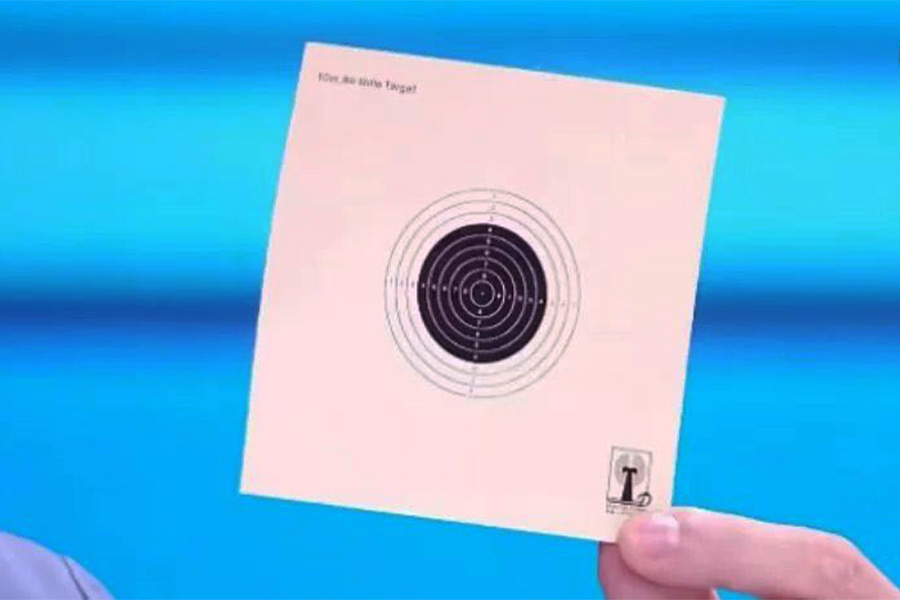
A recently viral photograph showed the scale of the target Olympic shooters aim at
Social capital and our need for it
An Olympic medal is rather unique. And rare. If we aggregate the world population since 1900 (the start of the modern Olympic games) and the total Olympic medals won, we will find only 0.0002 per cent of the world’s population ever won one. That could be the definition of rare.
As we know, the rarer a thing is or the more difficult it is to obtain, the higher its value. A Maserati is more valued than a Mahindra and so the former usually confers on its owner greater social capital, which is the social credit that we acquire from resources directly or indirectly because of their connection to our group. Social capital has emotions of pride, satisfaction and safety associated with it. A steady partner who supports you is more valued than 20 friends who are nowhere to be found in times of difficulty.
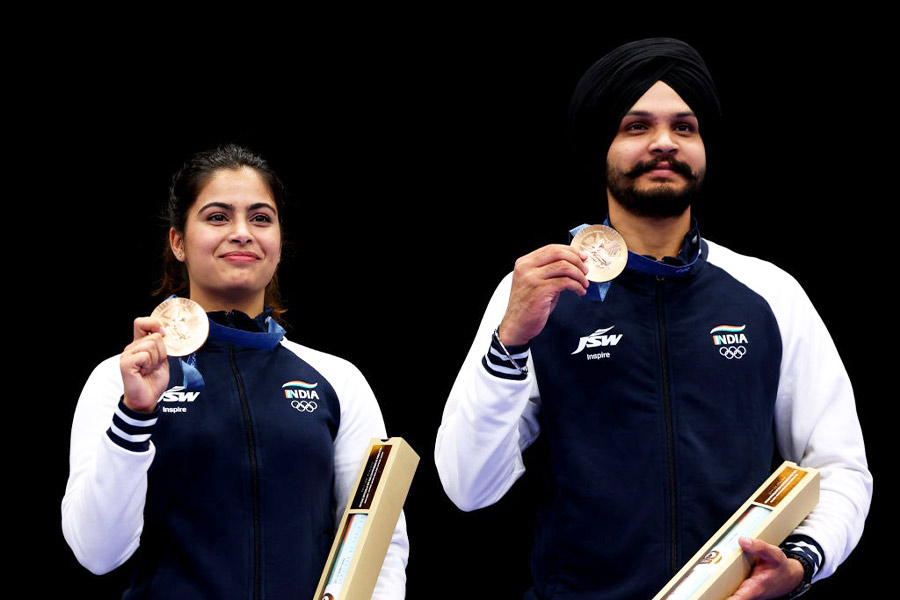
Winning an Olympic medal is a sign of nation-building, of societal growth (In picture: Manu Bhaker and Sarabjot Singh holding their bronze medals) Getty Images
Olympic medals have a lot of social capital associated with them. Winning a medal is a sign of nation-building, of societal growth. To reasonably expect to bring home an Olympic gold medal, you need to have two or more world top-five athletes in that event category. You need to have 10-12 national competitors who are within 5-10 per cent of the world-beating ones. You need to have 10-20 from each state fighting it out at the state level. You need to have 200 kids at the grassroot level in that sport alone. This is the sport development pyramid.
Conservative maths indicate a country like India needs about 10,000 people across levels in any Olympic sport to reasonably hope for a gold medal. To have that many sportspersons, the Indian society and people have to encourage sports. Even when it is not a convenient excuse to keep children busy while parents go about their day. But as a society, we are often conflicted between our need for social validation by our athletes winning medals and the inclination to relegate sports to a secondary pursuit in the grander scheme of life. An 18-year-old national-level shooter I worked with once told me: “I don’t tell people I am a shooter; I just tell them I go to college.” I asked him why. He replied: “Because people keep saying, that’s good, if it doesn’t work out, you can always join the army. Good backup!” He laughed as he said this but his eyes told a different story.
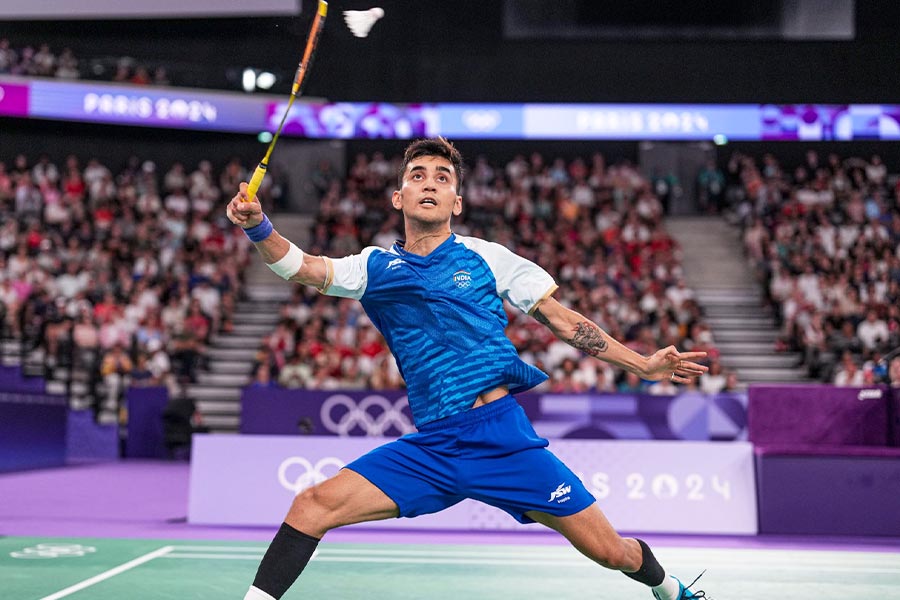
Conservative maths indicate a country like India needs about 10,000 people across levels in any Olympic sport to reasonably hope for a gold medal (In picture: Lakshya Sen at the Olympics 2024) PTI
Olympic dreams, ours and theirs
In our current singular pursuit of social capital and pride through our Olympians, we have simultaneously created heroes and villains of them all. Every time they win, we are reassured about our nation’s sporting prowess and social capital. The win also serves as a healthy distraction from the disappointments in our national life — I suspect often that is all sports are to us. But every time they lose, we vilify them by spouting poison, often to relieve the burden of frustrations in our own lives.
I have been a part of Olympic support teams that have returned empty-handed. I have been a part of Olympic support teams that have returned with medals. Believe me when I say it, no one wants to be told four years of their life (roughly 8 per cent of your adult life) has amounted to nothing. The reality is that four years of effort always amounts to something. There are victories and achievements, even if those are not apparent at that moment.
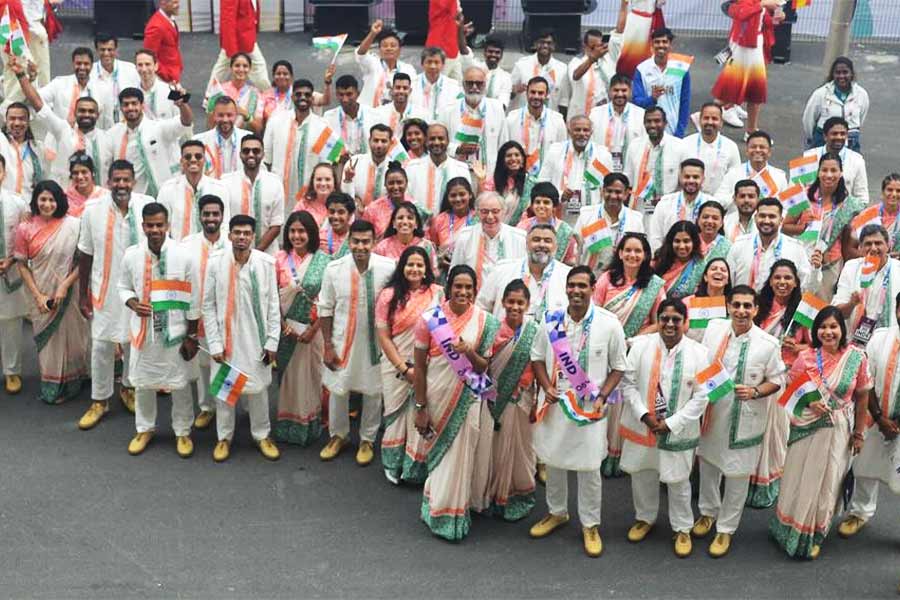
An Olympic medal for an athlete is their entry into the history books (In picture: Team India at the opening ceremony for Paris Olympics 2024) @weareteamindia/Instagram
Nikhat Zareen, Satwik-Chirag, H.S. Pranoy, P.V. Sindhu, Lakshya Sen, Sift Samra, Bommadevara-Rai-Jadhav, Sarabjot Singh, Manika Batra, Manu Bhaker, Swapnil Kusale, Neeraj Chopra, Kishore Jena and Mirabai Chanu have all tried or will try their best at Paris. They were and are up against the top five in their field. But take it from me, even if you multiply your desire for a medal by 10, you would still fall short of how much each of them wants a medal. A medal for spectators is an Instagram post. An Olympic medal for an athlete is their entry into the history books.
Dr Sahen Gupta is a Kolkata-born, India- and UK-based psychologist who divides his time between mental health support and high-performance coaching. As the founder of Discovery Sport & Performance Lab, he works not only with Olympians and other top-level sportspersons, but also with CEOs and other professionals striving for excellence. Dr Gupta’s mission is to simplify complexities of the mind into actionable and simple ‘doables’ that allow individuals to be mentally fit.
